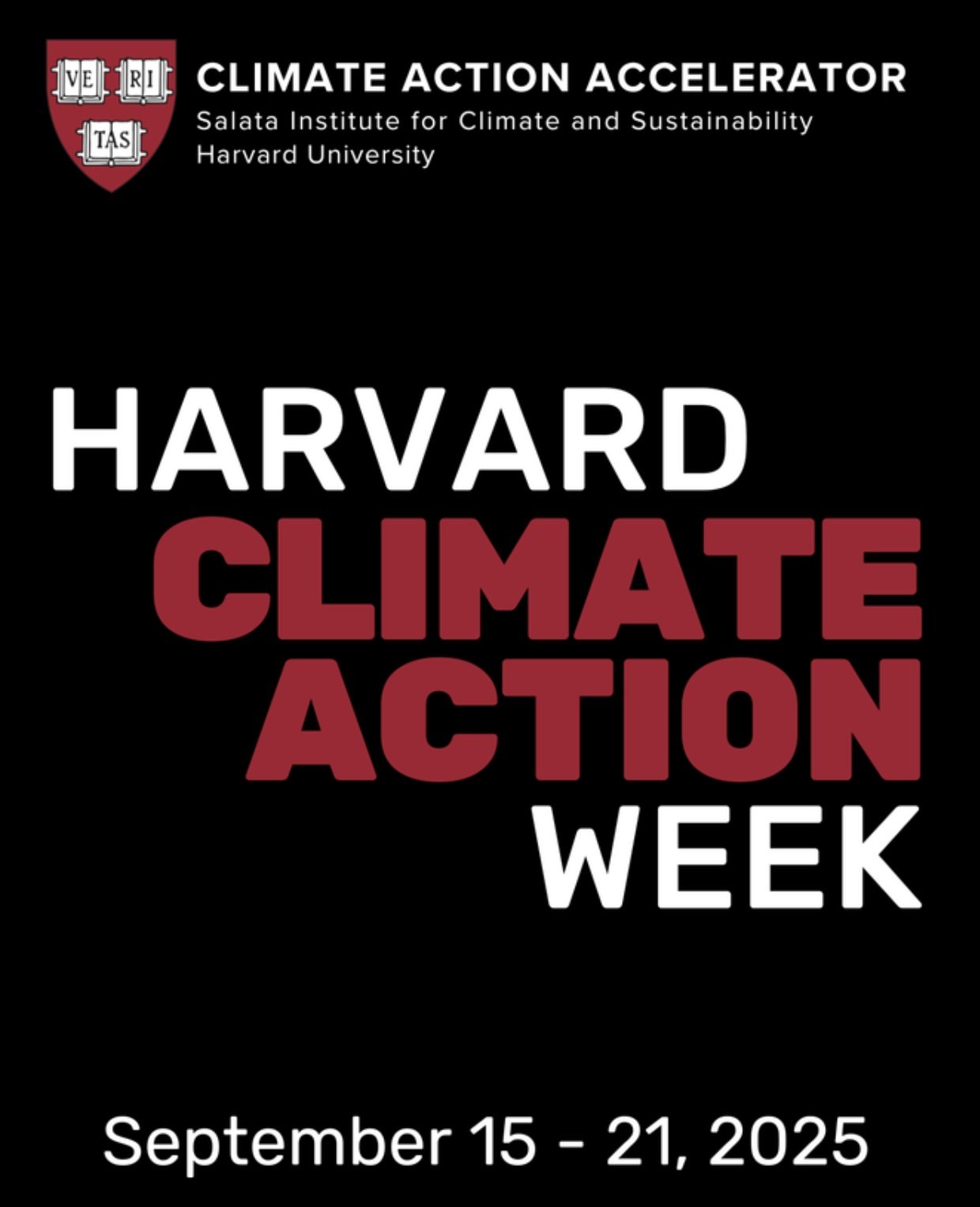Harvard Climate Symposium Saturday Review September 20, 2025
Last weekend was a great few days spent at the Harvard University Climate Symposium.
I am grateful for the invitation to attend this symposium and accelerator and to learn about some of the most important ideas, from many of the greatest minds, pioneering climate change resilience, adaptation and solutions.
I caught 9 sessions total and will work to review them this week for you, alongside the other events I will be attending throughout this week.
At Harvard, I found that the hope and optimism in the room was palpable. I feel more than ever that with human innovation, we can certainly right our wrong as humanity. Thank you, Harvard, for the hope. In the days of extreme weather and fear, it was a pleasure to be in a room that echoed with solutions and hope for the future.
I found it refreshing that there was also enough humor in the presentations, that it made you really feel that sometimes you have to scratch your head and have a laugh at the absurdity of the train wreck that is climate, climate denial and pathways forward.
A few key takeaways if you are going to take time to absorb my [not run through or generated by AI] content and event reviews from Climate Week.
1. Climate is not a fad. It is driven by law, data and physics.
2. It is now clear and critical to our world, that climate risk is seen as financial risk.
3. If you are still a climate change denier, it is worth noting that the atmosphere has 50% more CO2 than it did in pre-industrial times. Earth’s temperature has risen by an average of .11 degrees Fahrenheit (F) per decade since 1850 or about 2 degrees F in total. The rate of warming since 1982 is more than 3 times as fast at .36 degrees F per decade. 2024 was the warmest year since global records began in 1850 by a wide margin. It was 2.32 degrees F above the 20th-centure average of 57 degrees F. The 10 warmest years in the historical record have all occurred in the past decade 2015-2024. *www.climate.gov
4. You do not need to believe in climate change to want to diversify, de-risk and make money in the sector.
I have really enjoyed learning at Harvard even more about the innovations and important pioneers working around climate resilience, adaptation, infrastructure, storage, nuclear, policy & especially data to inform and protect law and environmental protections.
At my firm we work hard to support innovation and capital needs around technologies, conscious teams and critical concepts that will change the world as we know it for the better and this was a room full of like minds which I was grateful to be a part of.
Some key takeaways:
"It is time. The time is now and it is not going to go away. The world needs people, it needs your work, skills and commitments more than ever. It needs scientists, investors, engineers, lawyers. It needs you."
I will start with the end, when a student asked "What can we do as the emerging generation?"
I loved the answer to "create, invest, volunteer, work hard to help solve it" and "The way America gets
Session 1:
Scaling Climate Opportunity – Workforce Innovation as a tool for Climate and Economic Progress
Governor of Massachusetts Maura Healy met with Tracy Plandjian and discussed Massachusetts’ Clean Energy Economic Strategy emphasizing the need for a diverse energy mix of wind, hydro, solar, battery storage, nuclear and fusion. Governor Healy explained how they are supporting innovation and career pathways for creating 40K clean energy jobs with 4K electricians along. Brookings Report indicated the need for 30 million jobs that are needed for the clean energy transition. Governor Healy talked about the goal of making Massachusetts the global hub for climate tech and innovation. My favorite tag word from this talk was that we need a “whole-of-society approach”. The importance of tax credits for clean energy technologies and the impact of the Inflation Reduction Act on tax credits for various technologies like geothermal, nuclear and battery storage.
Tracy asked Governor Healy “What keeps you optimistic?” To which she replied “Persistence in pursuit with intentionality.” And “We are in this together!”
One of the most notable strategies the mayor, and other government officials, referenced in her work was the streamlining of the permitting programs so that they are more efficient. A few key programs Massachusetts now has in place are:
· Over 400 Training Partnerships
· Collaboration with labor unions such as IBEW Local 103
· Innovation Career Pathways (High school Program)
· Climate Service Corps (18-24 Year olds)
· Office for Apprenticeship
· Climate Career Funds
· $400M initiative to fund innovation




